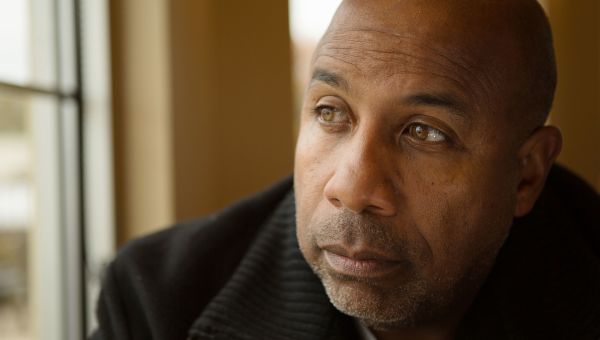Life after weight loss surgery: 5 things you might not expect
Bathroom habits, relationships and even your mood may shift.
Updated on December 4, 2024

You may have heard of weight-loss surgery, also known as bariatric surgery. Research shows that these procedures are effective for weight loss. They can also improve and even reverse certain obesity-related conditions, like diabetes and heart disease.
If you’re thinking of having weight-loss surgery, it’s important to first find out if your insurance covers these procedures. They can be very expensive. Private insurance companies generally consider them to be medically necessary, and may cover them. For those who meet their criteria, Medicare covers some bariatric surgical procedures. Medicaid varies by state.
Bariatric surgery is a major procedure. After surgery, patients may experience pain or discomfort as the body heals, and they should expect to follow a new eating plan for the rest of their lives.
“Much of any good bariatric surgical program is aimed toward making certain patients know what they need to know about surgery," says Steven Webb, MD, a bariatric surgeon in Jacksonville, Florida. With that in mind, here’s what to expect after surgery, including some side effects that may surprise you.

Your bathroom habits will change
There are different types of weight-loss procedures, each of which affects the body in a different way. Some surgeries may increase a person's risk of constipation. That’s when a person has fewer bowel movements than usual or difficulty passing stool for weeks at a time.
"The thing I most commonly see after the sleeve and the gastric bypass procedures is that folks will complain of constipation," Dr. Webb says. Constipation can be caused by many things, including dehydration and a low-fiber diet. Healthcare providers (HCPs) often recommend fiber supplements to patients who are having difficulty going to the bathroom.
Some people, on the other hand, will likely have more frequent bowel movements. This happens often with those who've had sleeve gastrectomy with duodenal switch surgery. This procedure shrinks the size of the stomach and bypasses much of the small intestine.
"We have to make sure patients understand we're shortening the bowel and they need to be prepared for two or three bowel movements a day," Webb says. "Not only may you have more frequent bowel movements, they'll also be very foul.”

Relationships may change
A lot of things can change after bariatric surgery. That includes your relationships with your partner, your friends, and even yourself. Several studies have found links between relationship changes and weight-loss surgery, including a 2021 study published in the International Journal of Obesity.
In the study, researchers looked at more than 27,000 people with obesity. Some had bariatric surgery and some did not. Over a period of eight years, those who had bariatric surgery were more likely to separate from their partners than those who didn't have the surgery.
Why? Some theories focus on how families often spend much of their quality time around the dining table. When eating habits change, relationships may, too. Another theory: Weight loss may give a person the confidence they need to leave an unhealthy relationship.
On the bright side, for people who are single, the 2021 study also suggests a link between bariatric surgery and a higher likelihood of finding a partner.
More research is needed, as studies so far have been small, and the findings can sometimes contradict each other. But it’s good to be aware that some dynamics in your relationships might experience shifts.

You may experience post-surgery depression
Although bariatric surgery takes place in the abdomen, it affects your overall health, including your mental health. Research suggests a link between obesity and depression, though it's unclear whether weight is the catalyst for depression or depression the root of weight gain.
According to a 2023 review published in Frontiers in Endocrinology, one common result of weight-loss surgery is the reduction of depression. People who were depressed before surgery tend to be less so afterwards. In fact, researchers found that bariatric surgery improves not just depression, but also anxiety and eating disorders.
But there’s a catch. They also confirmed earlier research that found bariatric surgery is linked to a higher rate of self-harm, suicide, and alcohol use disorder. The reasons for this are still somewhat unclear. It's important to speak with your HCPs about any and all issues that arise after surgery.

Your diet will be altered—forever
Your HCP will prescribe a strict diet before and immediately after the procedure. This may involve consuming only liquids for a period of time. While you won't be confined to a liquid diet forever, your eating habits will be different after surgery than before, provided you follow the prescribed plan.
"Patients are going to tolerate smaller amounts of food, and they have to be prepared for that," Webb says. "They may not be able to eat more than 2 or 3 ounces of food at a time." Bypass patients will want to avoid carbohydrate-heavy foods, like cookies and pasta, as they can cause dumping. Dumping syndrome is characterized by the rapid emptying of the stomach into the intestine. It can cause cramping, vomiting, and diarrhea.
Not all food groups should be avoided. Your HCP will likely recommend you follow a protein-rich diet after any weight-loss procedure. Sitting down and eating slowly is also wise. Because consuming liquids with your meals can also cause dumping, your HCP will also likely suggest you avoid drinking while you eat.

You’ll go through clothes like crazy
Most people who opt for weight-loss surgery lose a considerable amount of their starting weight. In fact, it’s not uncommon to drop between 40 and 80 percent of excess body weight in the two years following surgery. Just how much weight an individual will lose, and how quickly they lose it, varies, but you may need to change your wardrobe.
"Weight-loss surgery does not need to be looked at as a single event and then you're done," Webb says. "It needs to be looked at as one of the big milestones in a lifelong process of losing the weight and then keeping it off."

Cleveland Clinic. Bariatric Surgery. Page last reviewed June 9, 2022.
Penn Medicine Princeton Health. Digging Deeper: Insurance for Bariatric Surgery. Page accessed February 25, 2024.
Medicare.gov. Bariatric surgery. Page accessed February 25, 2024.
American Society for Metabolic and Bariatric Surgery. Life After Bariatric Surgery. Page last updated February 2021.
Jurgensen, Julia. Managing Constipation after Bariatric Surgery. Mayo Clinic. January 10, 2023.
Bramming M, Hviid SS, Becker U, et al. Changes in relationship status following bariatric surgery. Int J Obes (Lond). 2021 Jul;45(7):1599-1606.
Centers for Disease Control and Prevention. Consequences of Obesity. Page last reviewed July 15, 2022.
Law S, Dong S, Zhou F, et al. Bariatric surgery and mental health outcomes: an umbrella review. Front Endocrinol (Lausanne). 2023 Nov 2;14:1283621.
Johns Hopkins Medicine. Dumping Syndrome After Gastric Bypass Surgery. Page accessed February 25, 2024.
National Cancer Institute. Diet and Nutrition After Gastrectomy: What You Should Know. Page accessed February 25, 2024.
Cleveland Clinic. Gastric Band Surgery (LAP-Band). Page last reviewed April 26, 2022.
Mayo Clinic. Sleeve gastrectomy. June 25, 2022.
Cleveland Clinic. Duodenal Switch. Page last reviewed April 6, 2022.
More On


video

article

slideshow


video


video
